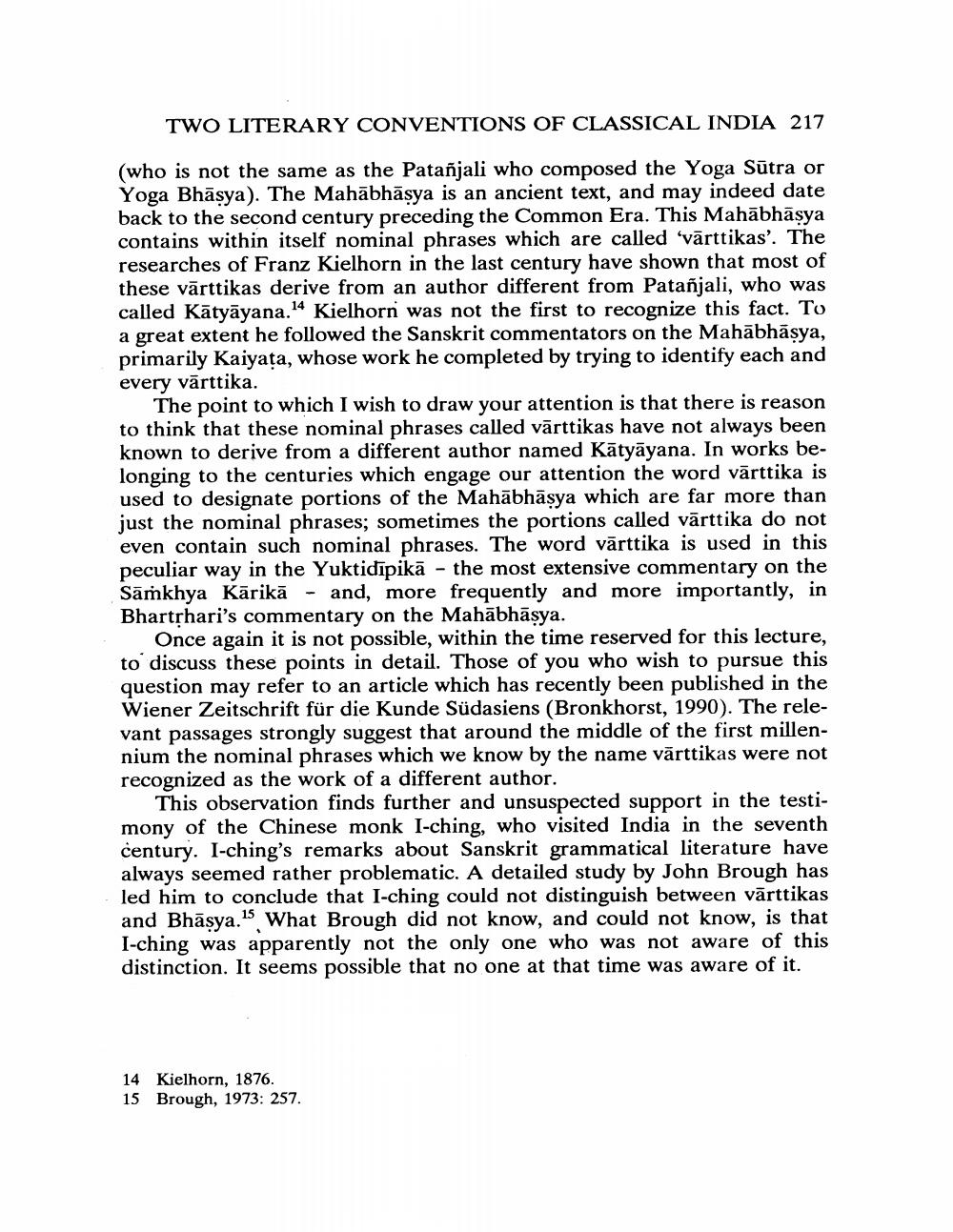________________
TWO LITERARY CONVENTIONS OF CLASSICAL INDIA 217
(who is not the same as the Patañjali who composed the Yoga Sūtra or Yoga Bhāsya). The Mahābhāsya is an ancient text, and may indeed date back to the second century preceding the Common Era. This Mahābhāsya contains within itself nominal phrases which are called 'vārttikas'. The researches of Franz Kielhorn in the last century have shown that most of these vārttikas derive from an author different from Patañjali, who was called Katyāyana.14 Kielhorn was not the first to recognize this fact. To a great extent he followed the Sanskrit commentators on the Mahābhāsya, primarily Kaiyata, whose work he completed by trying to identify each and every vārttika.
The point to which I wish to draw your attention is that there is reason to think that these nominal phrases called vārttikas have not always been known to derive from a different author named Kātyāyana. In works belonging to the centuries which engage our attention the word vārttika is used to designate portions of the Mahābhāsya which are far more than just the nominal phrases; sometimes the portions called vārttika do not even contain such nominal phrases. The word vārttika is used in this peculiar way in the Yuktidipikā - the most extensive commentary on the Samkhya Kārikā - and, more frequently and more importantly, in Bhartrhari's commentary on the Mahābhāsya.
Once again it is not possible, within the time reserved for this lecture, to discuss these points in detail. Those of you who wish to pursue this question may refer to an article which has recently been published in the Wiener Zeitschrift für die Kunde Südasiens (Bronkhorst, 1990). The relevant passages strongly suggest that around the middle of the first millennium the nominal phrases which we know by the name vārttikas were not recognized as the work of a different author.
This observation finds further and unsuspected support in the testimony of the Chinese monk I-ching, who visited India in the seventh century. I-ching's remarks about Sanskrit grammatical literature have always seemed rather problematic. A detailed study by John Brough has led him to conclude that I-ching could not distinguish between vārttikas and Bhāsya.s What Brough did not know, and could not know, is that I-ching was apparently not the only one who was not aware of this distinction. It seems possible that no one at that time was aware of it.
14 Kielhorn, 1876. 15 Brough, 1973: 257.




